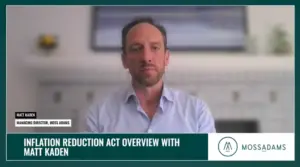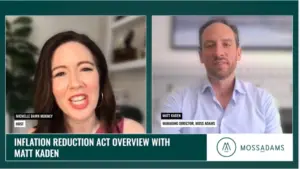Do Less US Gas Exports Mean Lower Costs for Businesses?
Three Key Points:
- Like most industries, higher energy prices for one could usually mean higher profits for another, even in a B2B context.
- Government should do its best to maintain fairness in the marketplace without picking “winners and losers.”
- Uncertain federal action is forcing suppliers and consumers in the energy industry to be realistic about what they can and can’t control, and whether they’re up for the challenge of staying afloat in exports.
Commentary:
The Industrial Energy Consumers of America recently asked the United States Department of Energy to temper liquefied natural gas exports in order to keep at-home supply high. According to the IECA, because an increased pace of US Gas Exports is leading to inflation in the market, this request comes from a desire to keep energy costs low for the consumer and industrial customers. MarketScale asked Aaron Alpeter, Principal and Founder of Izba, how moves like these could alleviate pressure while still allowing companies to recoup their investments.
What Aaron Alpeter Said:
Think you have to first start off by asking which pressures are you trying to alleviate? Which companies are you hoping to allow to recoup their investments? Recall, there’s always two parties to every transaction in higher prices for one usually can mean higher profits for another. Something that’s good for bad for one person could be good for another person and vice versa.
Personally I believe, the government should do its best to maintain fairness in the marketplace. But the challenge is that doing so in such a way so that you avoid picking winners and losers. I don’t think that there’s a one size fits all right or wrong answer. You have to look at each circumstance individually. So, for example, if a supplier had done its research and concluded that there was a market wave that was imminent, maybe it was a few years out and they decided to deficit spend for a few years in advance of that so that they’re better positioned to take advantage of it.
I think that they would be understandably upset if the finger was put on the scale against them. However, if a consumer or a customer found that prices were increasing dramatically due to a limited number of providers, such as what we see today in Ocean shipping, then perhaps some market intervention is required as things start to shift in any industry where if it’s a tariff or short of some kind. Businesses must evaluate, is it worth sticking through it?






